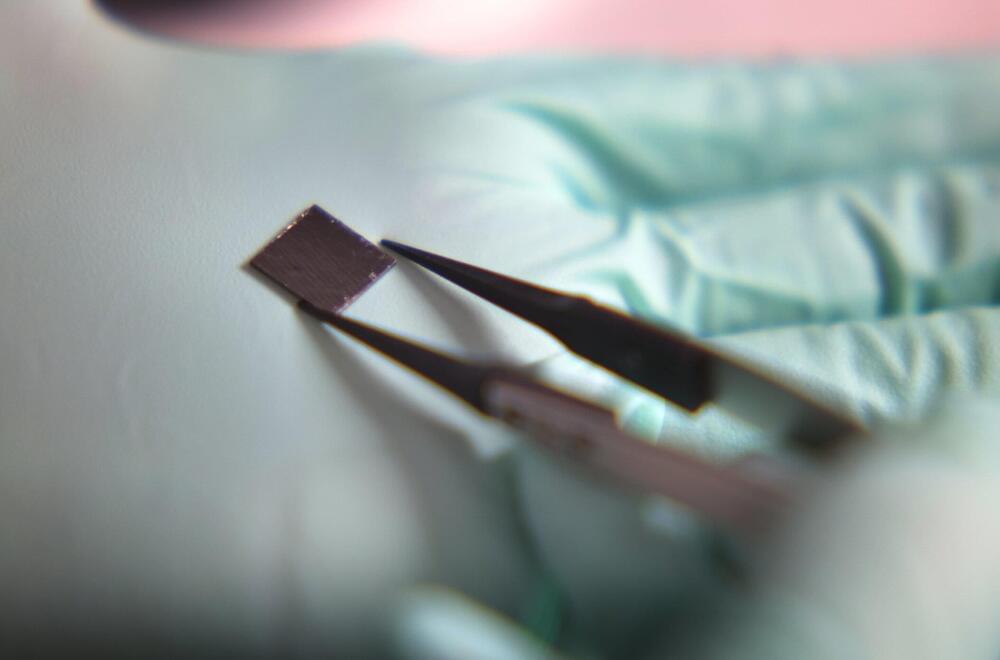In a discovery that could speed research into next-generation electronics and LED devices, a University of Michigan research team has developed the first reliable, scalable method for growing single layers of hexagonal boron nitride on graphene.
The process, which can produce large sheets of high-quality hBN with the widely used molecular-beam epitaxy process, is detailed in a study in Advanced Materials.
Graphene-hBN structures can power LEDs that generate deep-UV light, which is impossible in today’s LEDs, said Zetian Mi, U-M professor of electrical engineering and computer science and a corresponding author of the study. Deep-UV LEDs could drive smaller size and greater efficiency in a variety of devices including lasers and air purifiers.
